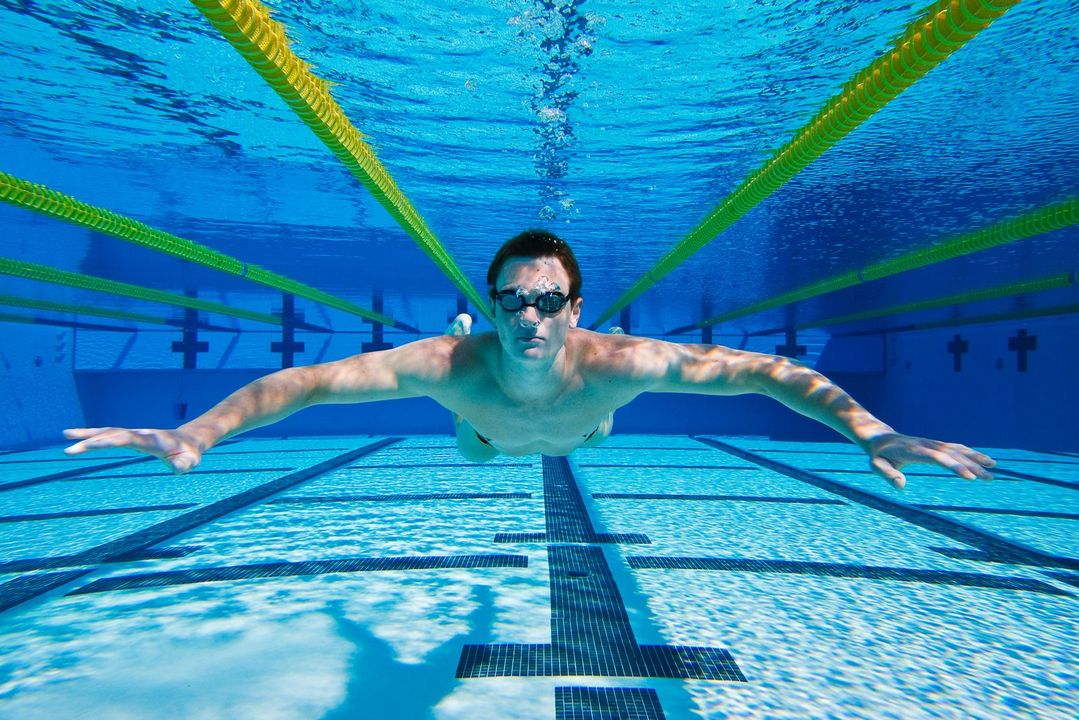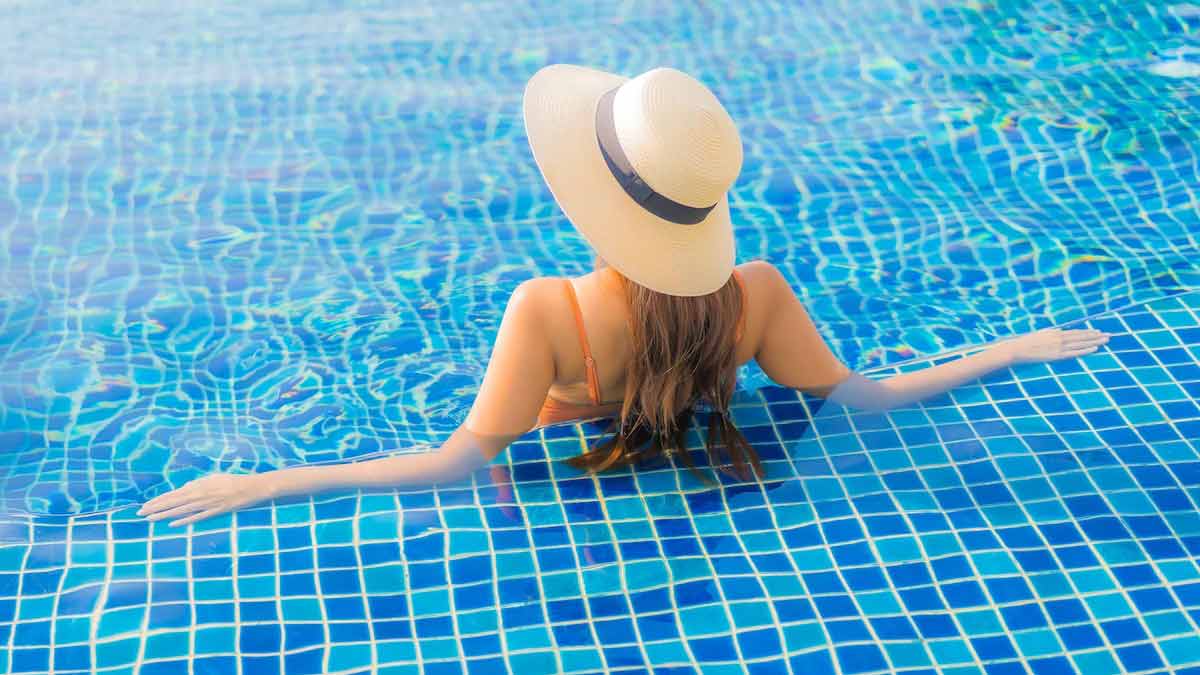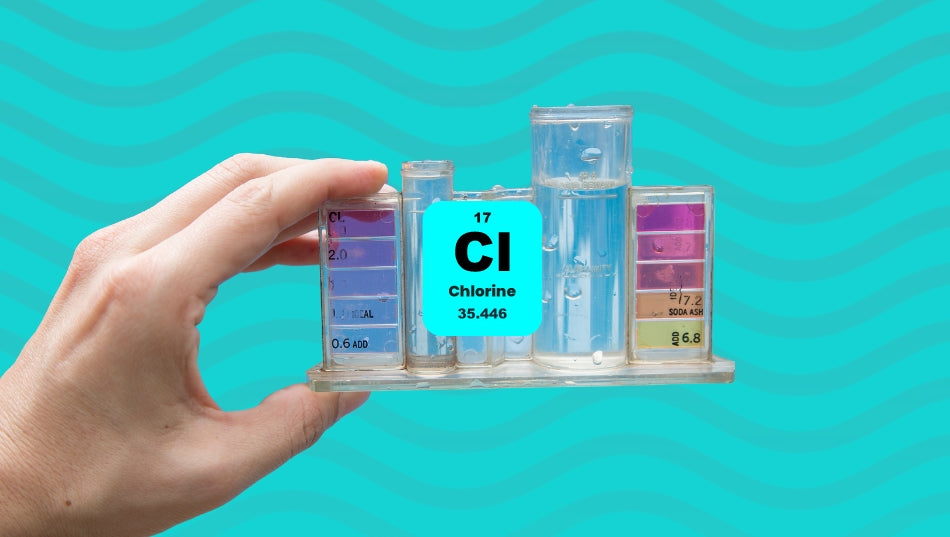Chlorine-Free Pools: Are They Better for Swimmers?
Table of content:
Swimming is one of the most enjoyable ways to stay fit, cool off, and relax. However, for those of us who frequent public pools, there's one thing we’ve all encountered: chlorine. This chemical has long been the go-to solution for keeping pools clean and safe from harmful bacteria. But as concerns grow over chlorine’s potential health risks and environmental impact, many people are seeking alternatives. Enter chlorine-free pools. But are they truly better for swimmers?
In this article, we'll explore the pros and cons of chlorine-free pools, how safe they are, and why they might be a better choice for your health and the environment.
Are Chlorine-Free Pools Safe?

One of the first questions swimmers ask is, “Are chlorine-free pools safe?” After all, chlorine has been the standard for pool sanitation for decades. While chlorine-free pools rely on alternative sanitation systems, they are designed to be just as safe as traditional pools, if not safer in some ways.
Chlorine is highly effective at killing bacteria and germs, but it comes with certain downsides. The strong smell, skin irritation, and even potential links to respiratory problems have raised concerns. Chlorine-free pools, on the other hand, use methods like saltwater systems, ozone generators, or UV sanitization to keep the water clean without harsh chemicals.
As long as these alternative systems are properly maintained, they can provide an equally safe environment for swimmers. Plus, these non-chlorine options tend to produce fewer harmful byproducts, which could make them a healthier choice overall.
Benefits Chlorine-Free Pools
So, why of choose a chlorine-free pool? Let’s break down some of the benefits.
1. Gentler on Skin and Eyes:
One of the most common complaints about chlorine is that it can irritate the skin and eyes. Many swimmers report red, itchy skin or burning eyes after spending time in chlorinated water. Chlorine-free pools, particularly those using saltwater or UV systems, are much gentler on sensitive skin and are less likely to cause irritation.
2. Health Benefits of Chlorine-Free Pools:
Swimmers with asthma, allergies, or other respiratory issues may find chlorine-free pools easier to tolerate. Chlorine can aggravate respiratory conditions, but chemical-free swimming pools don’t release the same harsh fumes that contribute to breathing problems. In the long run, reducing exposure to chlorine may help improve lung health.
3. Better for Hair:
Ever noticed your hair feeling dry and brittle after a swim? Chlorine is notorious for stripping natural oils from your hair, leaving it dry and damaged. Swimming in chlorine-free pools can help keep your hair healthier and more hydrated.
4. Reduced Allergic Reactions:
Chlorine sensitivity is a real issue for many people. Symptoms can range from mild skin irritation to more severe allergic reactions like rashes or breathing difficulties. For those with a chlorine allergy, chlorine-free pools are a game-changer, allowing them to swim without any adverse effects.
Chlorine vs Chlorine-Free Pools: What’s the Difference?
When comparing chlorine vs chlorine-free pools, it’s important to understand the different methods of pool sanitation available. Chlorine-free pools don’t mean the water is left untreated; instead, they use alternative systems to keep the pool clean and safe for swimmers.
1. Saltwater Pools vs Chlorine Pools:
Saltwater pools are a popular alternative to chlorine pools. While they still use chlorine to some degree, it’s produced naturally through a process called electrolysis, which converts salt into chlorine. The result? A much lower concentration of chlorine, making saltwater pools gentler on your skin, hair, and eyes. Plus, many people prefer the softer feel of saltwater compared to traditional chlorinated water.
2. Natural Pools for Swimmers:
These pools mimic natural bodies of water by using plants and natural filtration systems to keep the water clean. Natural pools are eco-friendly and chemical-free, offering a completely chlorine-free swimming experience. They’re a great option for those who want a more natural swimming environment, though they require a bit more maintenance and space.
3. UV Pool Sanitization:
Ultraviolet (UV) pool sanitization is another chlorine-free method that uses UV light to kill bacteria and viruses. It’s a highly effective system that doesn’t rely on any chemicals, making it a great choice for eco-conscious swimmers.
4. Ozone Pools:
Ozone pools use ozone gas to sanitize the water, which breaks down harmful contaminants without leaving any chemical residues. This system is effective and environmentally friendly, though it often works best when combined with a secondary method like UV or saltwater.
Chemical-Free Swimming Pools: A Safer and Eco-Friendly Choice
Beyond the personal health benefits, chemical-free swimming pools are also better for the environment. Traditional chlorine pools can release harmful byproducts into the air and water, potentially harming wildlife and aquatic ecosystems. Eco-friendly swimming pools, such as natural and saltwater pools, use fewer chemicals and produce less waste.
For environmentally conscious swimmers, making the switch to a chlorine-free pool system is a small yet impactful way to reduce your environmental footprint. Plus, the long-term effects of swimming in chlorine-free pools are promising, as reduced exposure to chemicals may lower the risk of skin and respiratory problems.
Skin Health and Chlorine-Free Pools
Skin health is one of the primary concerns for many swimmers, and chlorine isn’t always kind to our largest organ. Chlorine can strip the skin of its natural oils, leading to dryness, itching, and even rashes for some people. This is especially true for individuals with pre-existing skin conditions like eczema or psoriasis.
Chlorine-free pools, by contrast, are much gentler on the skin. The natural filtration methods used in systems like saltwater and ozone pools allow swimmers to enjoy their time in the water without worrying about drying out their skin. For anyone looking to maintain healthy, hydrated skin, swimming in chlorine-free pools is a smart choice.
Long-Term Effects of Swimming in Chlorine-Free Pools

So, what are the long-term effects of swimming in chlorine-free pools? While research is still emerging, early signs point to improved skin health, fewer respiratory issues, and reduced exposure to harmful byproducts like chloramines, which are created when chlorine interacts with sweat, urine, and other organic matter.
Swimmers who spend significant time in pools, such as athletes or fitness enthusiasts, may especially benefit from switching to chlorine-free pools. Over time, this can reduce the wear and tear on your skin and hair, while also minimizing the risk of respiratory complications linked to chlorine exposure.
Allergy to Chlorine in Pools: A Growing Concern
Chlorine allergies are becoming more widely recognized, and for good reason. Prolonged exposure to chlorine can cause an array of symptoms, including sneezing, coughing, skin rashes, and even difficulty breathing. For individuals who experience these reactions, swimming in a chlorine-free pool can be a literal breath of fresh air.
Switching to a non-chlorine pool option can help alleviate these symptoms, allowing people with chlorine allergies to enjoy swimming without the negative side effects. Whether it’s a saltwater pool, natural pool, or UV-sanitized pool, these alternatives offer a healthier and more comfortable experience.
Conclusion
Chlorine-free pools are gaining traction as more people become aware of the potential risks associated with chlorine. From skin health to respiratory concerns, there are many reasons why swimmers are opting for chemical-free swimming pools. Whether you’re drawn to the benefits of saltwater pools, intrigued by the idea of natural pools, or looking for a more eco-friendly swimming option, there’s a chlorine-free solution for everyone.
While chlorine pools still have their place, the shift toward chlorine-free pools offers a safer, healthier, and more environmentally friendly way to enjoy swimming. So, the next time you take a dip, consider diving into a chlorine-free pool—it just might be better for you and the planet!
In any case, swimmers can always rely on Chlorine removal or protection skin care products like Pre Swim Lotion, Anti Chlorine Soap or Post Swim Shower Gel 🏊♂️








